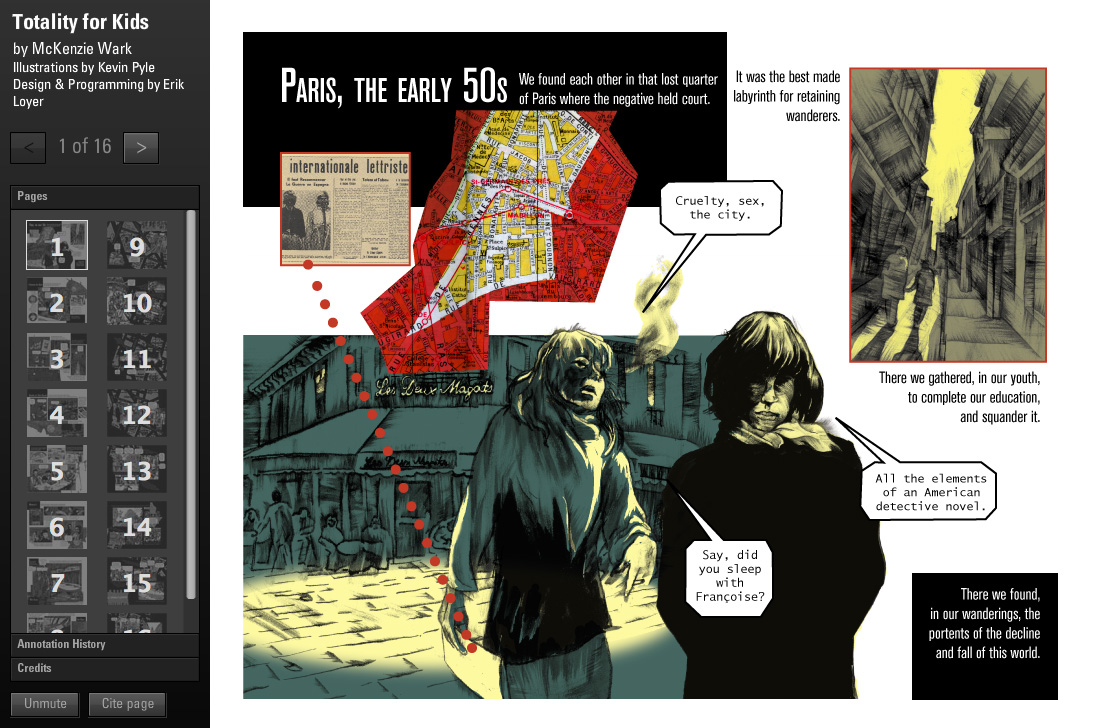Since its publication in 1993, interactive media designers have turned to Scott McCloud's Understanding Comics as a kind of bible for visual communication in the digital realm.
- Erik Loyer, Designer's Statement
Alternative views of Totality for Kids project data:
 All info and conversations from this project page
All info and conversations from this project page
http://vectors.usc.edu/xml/projects/totalityforkids_v1.xml
 RSS feed of the conversations from this project page
RSS feed of the conversations from this project page
http://vectors.usc.edu/rss/project.rss.php?project=99
http://vectors.usc.edu/xml/projects/totalityforkids_v1.xml
http://vectors.usc.edu/rss/project.rss.php?project=99
Author's Statement
Totality for Kids turned out completely differently to what I actually proposed. I had just done the Gamer Theory site with the Institute for the Future of the Book, and the Vectors people were interested in the participatory side of that. But things evolved. The Vectors team had a really nice way of creating a visual interface to an underlying database, so that seemed the place to start. The idea was to present Kevin Pyle's art as something like a comic strip, but where the reader could dive down through two layers beneath it. One layer would be explanatory text, and the second would be documents. These could be a sort of Easter egg for anyone who spent some time with the site. I wanted the whole thing to use freely available non-copyright material, so I commissioned The Love Technology to perform a traditional French folk song relevant to the period. (France in the 50s had a folk revival not unlike the American one). Likewise the art is all drawn from historical material but freely recast dtourned as the Situationists would say so as to be available in the public domain again under the Creative Commons license. The text of the strip is also all dtourned from the writings of Guy Debord and others. One aspect of the Digital Humanities that I think tends to get neglected is the aesthetics of presenting research material, and what attracted me to Vectors is their exploratory attitude to this.— McKenzie Wark, October 15th, 2013


